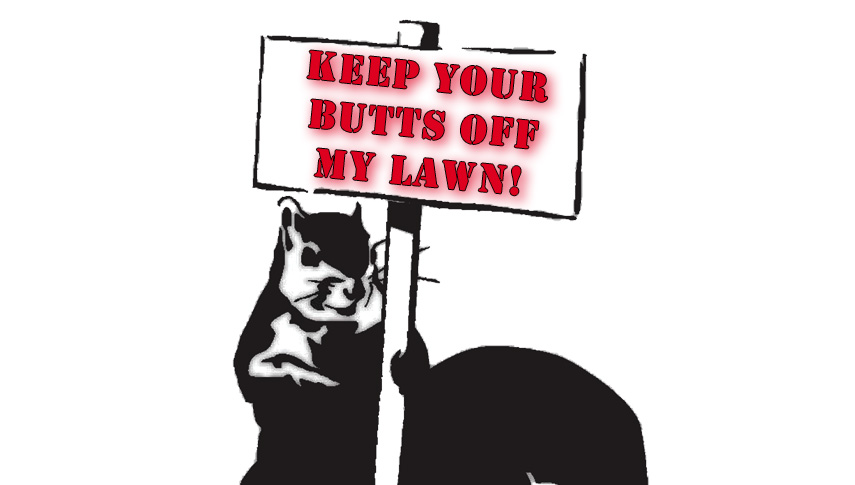Earlier this year, the Quad and certain adjacent areas went smoke free. The health effects of smoking are well-known, but do you know what effect smoking has on the environment? Cigarette butts are the No. 1 littered item on sidewalks, roads, beaches, and waterways. Every year, 4.3 trillion cigarette butts are thrown on the ground. That equals 1.7 billion pounds of cigarette butts on the ground and in lakes, ponds, and oceans.
Cigarettes are toxic and non-biodegradable. They remain in sewers, beaches, soil, and bodies of water for years and even decades. Cigarette butts ooze chemicals within an hour of contact with water. Cigarette smoke produces 10 times more air pollution than diesel car exhaust. Each year approximately 600 million trees are cut down per year to supply the cigarette industry.
There are thousands of chemicals in cigarettes. These chemicals enter the environment when cigarette butts are littered. The following chemicals are among those in cigarettes:
- Acetone, also known as nail polish remover
- Ammonia, found in floor and toilet cleaner *
- Arsenic, also known as rat poison * +
- Benzene, a petroleum additive+
- Butane, also known as lighter fluid
- Cadmium, found in rechargeable batteries+
- Carbon monoxide, found in car exhaust*
- DDT, found in insecticide
- Formaldehyde, also known as embalming fluid+
- Hydrogen cyanide, found in gas chamber poison*
- Lead, a poisonous element* +
- Mercury, a poisonous element*
- Methanol, also known as rocket fuel*
- Naphthalene, found in moth balls
- Propylene glycol, found in brake fluid
- Turpentine, also known as paint thinner*
- Vinyl chloride, found in PVC pipes +
*toxic
+known carcinogen
Thirdhand smoke
Earlier this year a study found that thirdhand smoke causes changes in human cells. Thirdhand smoke is the noxious residue that clings to surfaces long after secondhand smoke from a cigarette has cleared out. Chemical compounds can be at a high concentration if chronically exposed to secondhand smoke, and the residue may possibly become more harmful over time. Previous studies have shown that thirdhand smoke can be detected in dust and surfaces of apartments more than two months after smokers move out. Common cleaning methods such as vacuuming, wiping, and ventilation have not shown to be effective in ridding surfaces of smoke residue.
Cessation support available
If quitting tobacco is on your radar, there are plenty of resources to help! Quit Kits are available from the Health Promotion and Wellness office in 187 McCormick Hall as well as at the G Spot portable wellness gazebo. Students, faculty, and staff can purchase over-the-counter cessation products from the Student Health Services pharmacy. The Illinois Tobacco Quitline offers free, continued support to all Illinois residents. Visit the Quitline online at QuitYes.org or call (866) QUIT-YES (784-8937).
Interested in the environment?
Attend Healthy You Healthy Earth wellness and sustainability fair Wednesday, November 13, from 10 a.m. to 3 p.m. in the Brown Ballroom, Bone Student Center!

